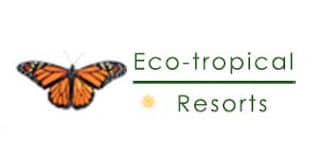Sustainable hand water pumps in the Usmabara Mountains, Tanzania A project of MamboSteunPunt in cooperation with FairWater
Water
Clear drinking water is still not obtainable to all citizens in many African countries. When MamboViewPoint opened in 2008, for the 22,000 inhabitants in the area, only one pump was available. Most people fetched water from open streams or holes which reached the ground water. Many negative problems occur for people using these as a source of drinking water.
Water Projects
Tanzania is a beloved country for donors, a peaceful society, but still within the top 10 of the poorest countries. Vast sums over the years have been spent on water projects. But still the situation is far from satisfactory. Presently only 62% of the population has access to clean drinking water.
What has been achieved?
Pumps have been installed by donors, but the result was they were not to be sustainable and the pumps broke soon after installation as no maintenance program had been put in place. According to a RWSN report, May 4th 2010 in Africa roughly 50% of the 350.000 donated pumps are abandoned; this is also true in Tanzania. In and around Mambo you can find many boreholes which are no longer covered or in use.
In all cases the pumps were supplied free to the user, who took no responsibility for the maintenance. After a while the pumps broke and the bore hole was abandoned. Often the inexpensive rope pumps were placed in areas of high demand, and expensive mechanical pumps installed in areas of low demand!
In the eighties the Afridev hand pump was developed in Kenya and Malawi. This should be an example of a VLOM pump (Village Level Operation and Maintenance) suitable for use in Africa. Unfortunately this pump appeared to have many shortcomings, especially the availability of spare parts. Many pumps broke down soon after being installed, the result was that these pumps were no different from the cheap pumps that are still favoured by governments and NGO’s alike.
The sustainable Fairwater X-factor
Fairwater has finally developed a durable pump that should be more sustainable compared to other pumps and should last for many years with a little maintenance.
A distinction should also be made and taken into account if the ground water is found near the surface or if it is deeper underground. This factor will determine the amount of use the pump will get during its life time and the amount of maintenance it will require.
If an organizational model is developed in which the stakeholders feel responsible for the maintenance of the pump, abandoned bore holes and pumps will hopefully become a thing of the past.
Fairwater projects are found in Angola, Burkina Faso, Cameroon, Congo, DRC, Central African Republic, Cote d’Ivoir, Ethiopia, Niger, Malawi, Mozambique, The Gambia, Kenya, South Africa, Tanzania, Uganda and Swaziland
How it now works in Mambo
The prime consideration for locating a pump are 300 people who are together prepared to pay an equivalent of 30 US dollars monthly for access to clean drinking water available all year round.
Then a contract is agreed with the community, the MamboSteunPunt foundation and a local company. The company; Jamii water, drills the bore hole and installs the pump. The company also collects the money for the pump manager’s wages and the maintenance. In cases of financial hardship support is offered by MamboSteunPunt. The workers from Jamii water are trained and assisted by MamboSteunPunt to ensure that the project will succeed and meet the needs of the local community.
Funding
Next the Blue pump is delivered by Fairwater. This pump costs US $3,250 and can be funded by a company or private individual. The ownership of this pump stays with MamboSeunPunt and the pump is removed if the community does not take care or does not pay the manager as agreed. The donor is then encouraged to use the pictures for advertisement and visit the people who are benefitting. This can be combined with a nice holiday in the Usambara Mountains.
The borehole is then drilled and the pump is put in place by Jamii water. They are assisted by local volunteers in the local community who will have access to the clean drinking water. The hand drill was funded by a Dutch insurance company and is used each time a suitable site meets the set criteria.
Every pump has a manager who is paid from the revenues of the pump. He is responsible for the proper use of the pump and collection of the money from the users for the maintenance. The manager is also responsible to make sure that the pump is clean and serviceable. The manager employed is always somebody who lives close to the pump and is appointed by the community. After the manager’s wages have been paid the remaining money is used for maintenance and payment for the cement to build the platform.
As the project has a strong involvement among the users, the control of the money and responsibilities are now in place to ensure the pump is properly used and maintained. This should now result in a sustainable supply of clean drinking water made possible by BleuPumps being brought to Mambo.
Donate a water pump in Mambo
Around Mambo we still need 80 (eighty!) pumps to supply average 300 people of clean drinking water.
The sustainable concept is in place the community don’t have enough means to buy the pump. Your contribution would make the difference to find additional information and help directly please contact us via:
www.MamboSteunPunt.org
www.MamboViewPoint.org
www.FairWater.org
